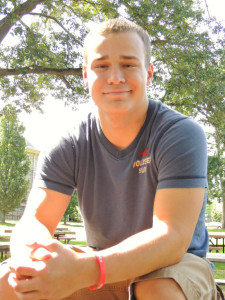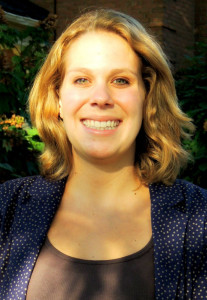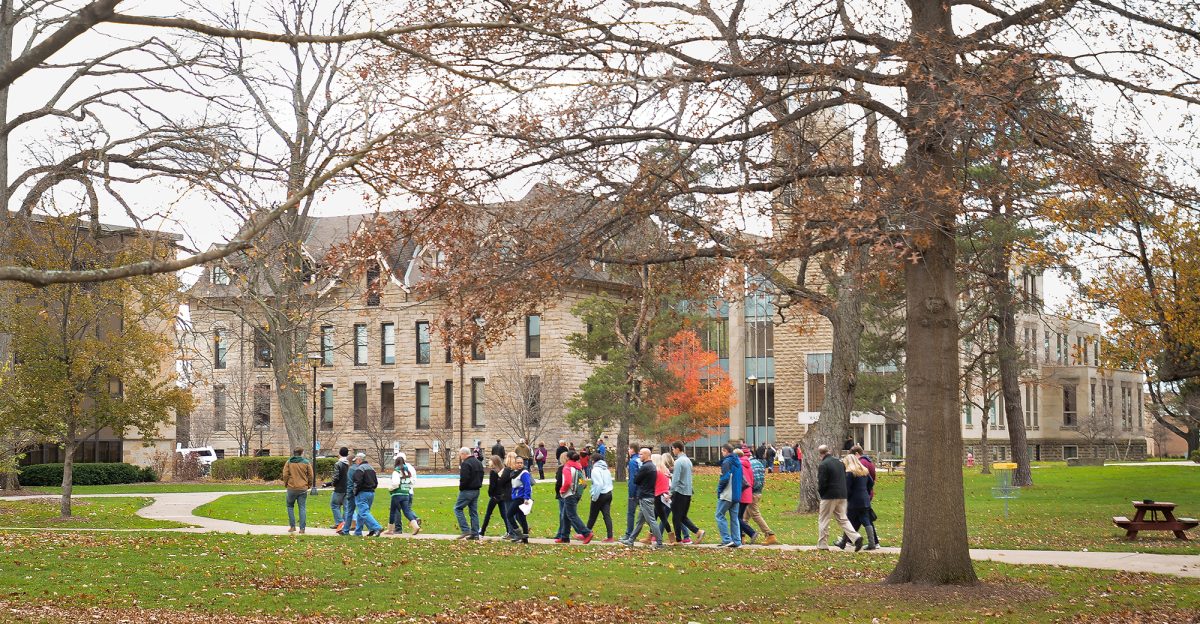This past summer, ten Baldwin Wallace University students participated in the Undergraduate Research and Creative Studies (URCS) Summer Scholars program. Each Scholar formulated their own project to research on campus with a faculty mentor. According to the URCS Summer Scholars online page, the Summer Scholars received $3,500 from the program with “free housing” and $500 reserved for expenses towards their work. Subject matter in the projects ranged from the sciences to the arts. Any freshman, sophomore, or junior student can apply to become a Summer Scholar. To find out more about the Summer Scholars program, visit the URCS page online at http://www.bw.edu/resources/dean/fscs /summerscholars/.
“Synthesis of a Chiral Ionic Liquid”
Jake Butchko

Credit: Leah Grimm
Exponent: Why did you participate in Summer Scholars?
Jake Butchko: I chose to participate in the Summer Scholars program because of the amazing opportunity it provided to develop my research skills, learn more about my major, and have the opportunity to work with a faculty member one-on-one.
E: Please briefly explain the project you developed.
JB: I was doing chemical research on developing a solvent that has more favorable properties than traditional dangerous lab solvents.
E: What results did you find from your study?
JB: The result of my project was a successful synthesis of the molecule we were researching, with an extra impure entity. We were able to learn more about the reaction mechanism itself, and the reliability of reacting compounds.
E: How will this experience help you after college?
JB: After college, this experience will have provided me with the development of real-world lab skills and reaction knowledge.
“We All Want to Change the World: A De-Construction of the White Album”
Patrick Hyzy
Exponent: Why did you participate in Summer Scholars?
Patrick Hyzy: It is totally cliché to say, but it was a once in a lifetime chance. It gave me the opportunity to devote myself solely to doing work that I genuinely enjoyed. I cannot say enough about how wonderful the program is.
E: Please briefly explain the project you developed.
PH: The end goal is a live concert of the entire White Album with complete orchestrations. My project had three parts: writing out the arrangements for our musicians, a historical research and analysis of the album, and logistically planning the concert itself.
E: What results did you find from your study?
PH: It is a small miracle that The Beatles were able to put out any music at all at the time of The White Album. They were at odds both creatively and personally.
E: How will this experience help you after college?
PH: I learned a lot compositionally by studying the orchestrations so closely. I will carry those lessons with me through many of my future musical projects.
E: What made you choose the White Album as opposed to any other Beatles album?
PH: If there was any Beatles album I could intensely study for 10 weeks without getting mind-numbingly bored, it had to be a record as musically and historically dense as The White Album. Also, the BW Beatles festival rotates four of the group’s major works, so when choosing our 4th album for next year, The White Album was the sensible choice.
“Enhancing Language Literacy through Music: A Review of Literature”
Erika Hubbell

Credit: Leah Grimm
Exponent: Why did you participate in Summer Scholars?
Erika Hubbell: I have always been interested in research but have never had the opportunity to fully understand all that goes into a project of this sort. This was an opportunity for me to explore research and also be able to explore a topic I am highly interested in.
E: Please briefly explain the project you developed.
EH: My project focused on the collection and analysis of research studies done within the past 20 years on the effects music has on reading skills. I read over 30 articles from a multitude of sources including dissertations and scholarly journals. I then compiled my findings into a literature review, with the hopes of getting published in a prestigious music education journal.
E: What results did you find from your study? EH: Overall, I found that in most studies there was some positive impact on the students’ reading abilities when they participated in some kind of musical study. My literature review is broken into different categories based off of similarities I found between the articles, which include curricula that coordinates music and literacy, using music to support students who struggle with Standard English literacy, and quantitative data measuring intelligence, aptitude, and achievement scores.
E: How will this experience help you after college?
EH: This experience has shown me the world of research and my interest has increased in this field. There is a possibility of going to graduate school after graduation in May but my main goal is to be a teacher and teach children music. This project will also help me to explain to administrators, parents, and other teachers why music needs to be a part of every child’s education.
Other Summer Scholar Participants Include:
Tyler Alban
Richard Bargielski
Justin Caithaml
Rachel Hacker
Jenn Lenart
Marina Ojaimi
Logan Sirline






























